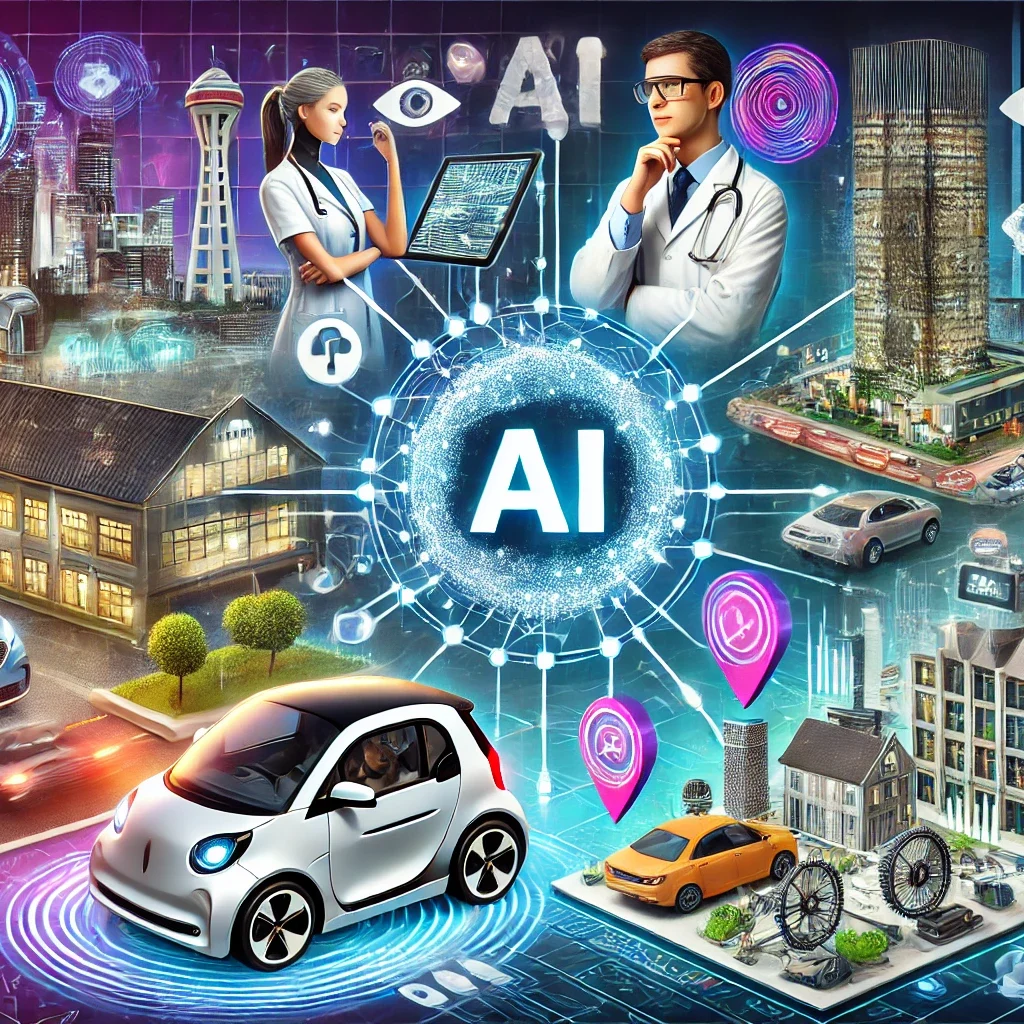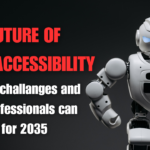Introduction
Artificial Intelligence (AI) is reshaping industries and driving innovation across the globe. From enhancing healthcare outcomes to optimizing supply chains, it is solving real-world problems and opening new possibilities. This post explores seven transformative applications of AI, showcasing its impact and potential.

1. AI in Healthcare: Enhancing Diagnosis and Treatment
The healthcare sector has embraced AI for its ability to analyze complex data with unmatched speed and accuracy. Its algorithms are now assisting in diagnosing diseases by analyzing medical imaging such as X-rays and MRIs. These systems help detect abnormalities like tumours earlier than traditional methods.
It is also pivotal in drug discovery. For example, companies like DeepMind utilize AI to predict protein structures, significantly accelerating the development of life-saving treatments. Moreover, AI-driven chatbots and virtual assistants are revolutionizing patient care by providing instant responses to queries and helping manage appointments.
2. Finance: Detecting Fraud and Automating Trading
AI plays a crucial role in safeguarding financial systems. Fraud detection algorithms powered by it analyze transactional data to identify suspicious activities in real-time, saving businesses billions annually.
In investment management, AI is used for algorithmic trading, where it processes large volumes of market data to make informed decisions at incredible speeds. Robo-advisors, another AI innovation, offer personalized financial advice, making wealth management accessible to everyday users.
3. Retail: Personalizing Customer Experiences
Retailers are using AI to enhance customer engagement and boost sales. AI-powered recommendation engines analyze user behaviour to suggest products tailored to individual preferences. For instance, platforms like Amazon and Netflix rely on AI to provide accurate recommendations that improve user satisfaction.
In addition, AI optimizes inventory management by forecasting demand patterns and reducing overstock and stockouts. This not only cuts costs but also ensures a seamless shopping experience for consumers.
4. Autonomous Vehicles: The Future of Transportation
Self-driving cars are among the most visible examples of AI in action. Companies like Tesla and Waymo use it to process data from cameras, sensors, and GPS systems, allowing vehicles to navigate safely and efficiently.
Its influence also extends to logistics, where it optimizes delivery routes to reduce fuel consumption and delivery times. This application not only cuts costs but also supports sustainability goals.
5. AI in Education: Personalized Learning
AI is transforming education by personalizing learning experiences for students. Platforms like Khan Academy and Duolingo use AI to adapt lessons based on a learner’s strengths and weaknesses. This ensures students can progress at their own pace, improving retention and outcomes.
Teachers also benefit from the tools that handle administrative tasks like grading and tracking performance, allowing them to focus on teaching and mentoring.
6. Manufacturing: Smart Automation and Predictive Maintenance
AI is revolutionizing manufacturing by enabling smart automation and predictive maintenance. For example, AI systems can analyze sensor data to predict equipment failures before they occur, minimizing downtime.
In factories, collaborative robots (cobots) work alongside humans to increase efficiency and ensure workplace safety. It also streamlines supply chains by forecasting demand and optimizing inventory, reducing costs and waste.
7. AI in Content Creation: Transforming Creativity
AI is enhancing creativity in fields like writing, art, and music. Tools like ChatGPT assist writers by generating ideas and drafting content. Meanwhile, platforms like DALL·E allow artists to create stunning visuals based on textual descriptions.
By automating repetitive tasks, AI enables creators to focus on innovation and storytelling, expanding the possibilities of creative expression.
Why AI Matters in Today’s World
AI’s ability to process vast amounts of data, identify patterns, and make predictions is transforming industries. These applications highlight its versatility and potential to address challenges in every sector.
Conclusion
As AI continues to advance, its role in shaping industries and solving global problems will only grow. By embracing it, individuals and businesses can unlock new opportunities and thrive in an ever-evolving world. Staying informed about AI’s capabilities is essential for success in this dynamic era.


Alright, supremabet1… not bad, not bad at all. Good selection of sports, and the payouts seem fair enough so far. I’d say give it a shot and see if it works for you. supremabet1